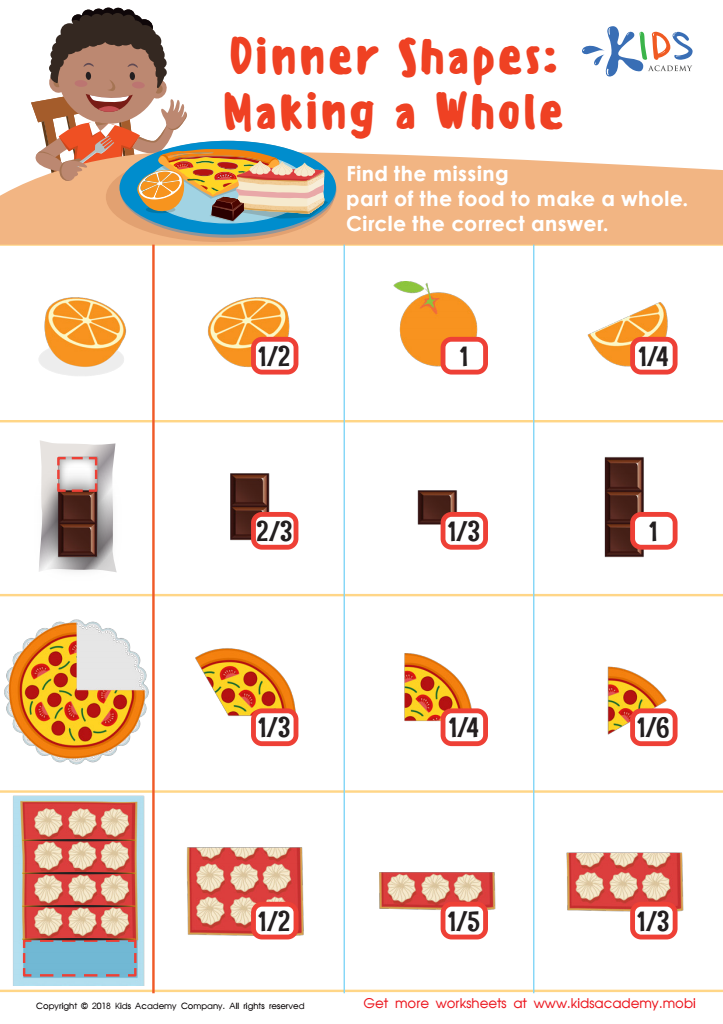Sorting skills Addition & Subtraction Worksheets for Ages 8-9
3 filtered results
-
From - To
Enhance your child's math abilities with our engaging Sorting Skills Addition & Subtraction Worksheets for ages 8-9! Designed to foster essential sorting skills alongside foundational math concepts, these worksheets will guide your child through exciting and interactive activities. As they categorize numbers and solve addition and subtraction problems, learners will develop critical thinking and organizational skills in a fun way. With clear instructions and a variety of exercises, children will gain confidence in math while honing their sorting abilities. Perfect for homeschooling or classroom settings, our worksheets make learning enjoyable and effective! Download now to support your child's mathematical journey!


Dinner Shapes: Making a Whole Worksheet
Sorting skills, addition, and subtraction are crucial foundational components for children aged 8-9, laying the groundwork for more advanced mathematical concepts. At this age, children begin to explore complex problem-solving and critical thinking, making solidifying these skills essential.
Parents and teachers should prioritize sorting skills, as they enhance children's ability to categorize information, recognize patterns, and develop logical reasoning. This cognitive organization is integral not only for math but also for daily decision-making and understanding the world around them.
Incorporating addition and subtraction exercises needs to be engaging; this age group can handle multi-digit equations and solve word problems. Mastery of these operations boosts children's confidence in math and encourages a positive attitude towards the subject. Furthermore, proficiency in addition and subtraction supports future learning in areas such as geometry, algebra, and data analysis, ensuring they transition smoothly into higher-level concepts.
By nurturing sorting skills alongside addition and subtraction, parents and teachers foster not just academic ability, but also encourage persistence and intellectual curiosity, preparing children for success in their educational journey and beyond. These early experiences significantly contribute to building a strong mathematical foundation, paving the way for lifelong learning.
 Assign to My Students
Assign to My Students


















